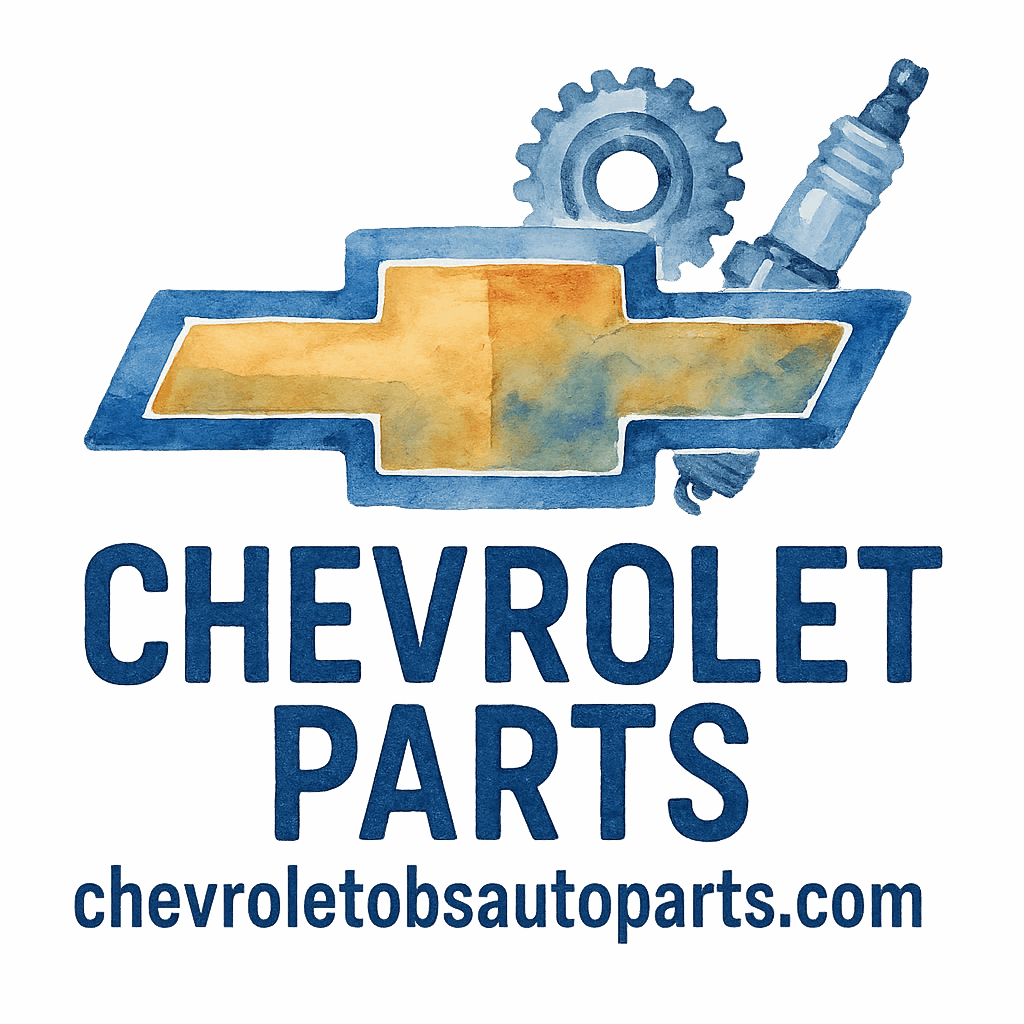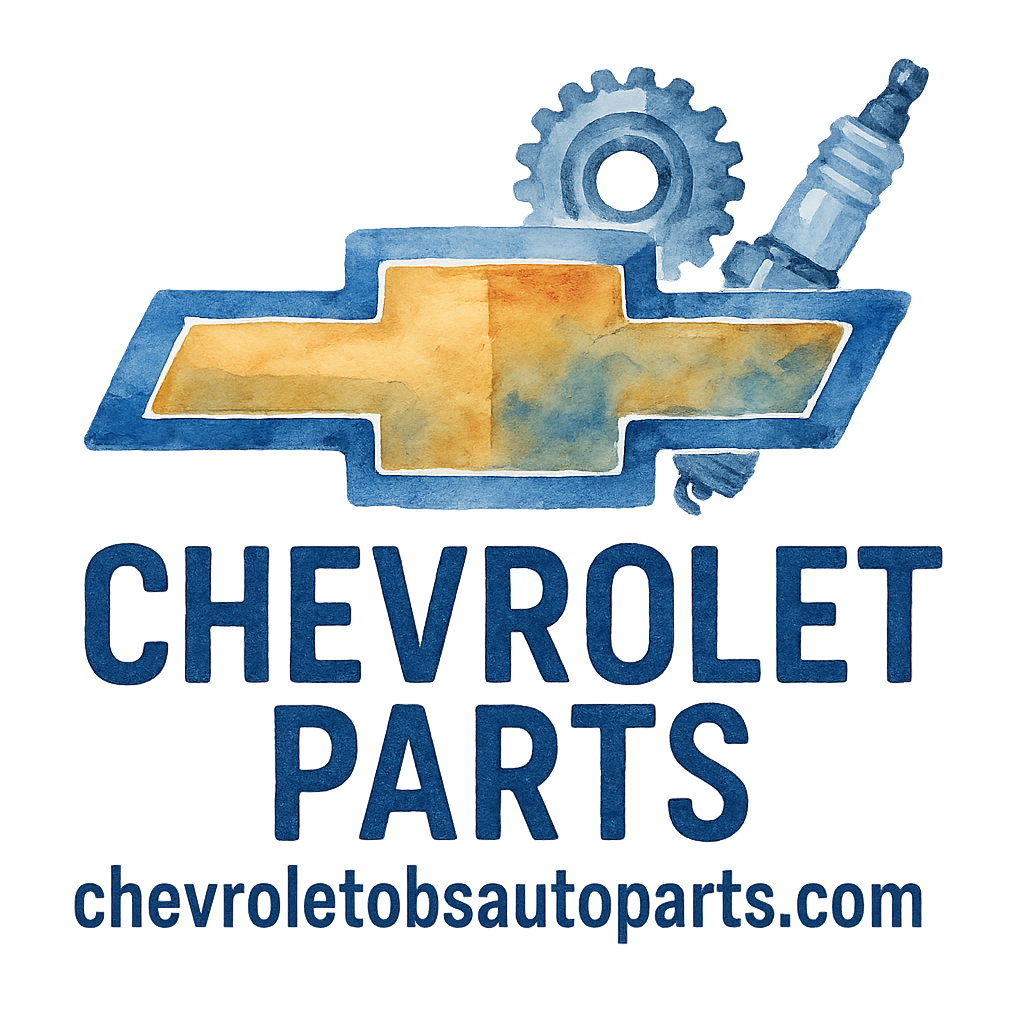Finding the perfect part for your Chevrolet shouldn’t feel like solving a jigsaw puzzle blindfolded. Whether you’re upgrading your engine or replacing a worn-out headlight, getting the right part is crucial—not just for performance, but also for safety and peace of mind. Let’s break down 10 practical tips to help you choose the best Chevrolet parts without the headache.
Why Picking the Right Chevrolet Parts Matters
Before we dive into the nitty-gritty, let’s get one thing straight: not all car parts are created equal. The wrong part can mess with your ride’s performance, void warranties, and even put your safety at risk. That’s why picking the right Chevrolet parts isn’t just smart—it’s essential.

Tip 1: Know Your Chevy Model and Year
Compatibility is Key
Your 1995 Chevy Tahoe isn’t the same as a 2003 Silverado. Even small changes between model years can affect compatibility. Always double-check the exact model, trim, and year before buying anything.
Check Your VIN Number
Your Vehicle Identification Number (VIN) holds a treasure trove of information about your Chevy. It can help verify part compatibility and avoid costly mistakes.
🔗 Learn more on our buying guide
Tip 2: Stick with OEM or Trusted Aftermarket Brands
OEM vs Aftermarket: What’s the Difference?
OEM stands for Original Equipment Manufacturer. These parts come straight from Chevy’s playbook—guaranteed to fit and perform perfectly. Aftermarket parts, on the other hand, are made by third parties and vary in quality.
Recommended Brands You Can Trust
If you go aftermarket, stick with names known for reliability. Brands that get consistent high ratings on engine performance or interior comfort upgrades are usually a safe bet.
Tip 3: Research Before You Buy
Use Reliable Online Resources
Before clicking “Add to Cart,” do a little digging. Read blogs, check YouTube tutorials, or visit dedicated forums like those discussing Chevy service and upgrades.
Compare Features and Specs
Not all parts are created equal—even if they serve the same function. Check dimensions, materials, and additional features to ensure the best fit and function.
Tip 4: Don’t Forget About Warranty
Why Warranties Matter
Think of a warranty as your safety net. If the part fails early or doesn’t fit as promised, you want a backup plan.
What to Look for in a Warranty
A solid warranty should cover at least 12 months and include both manufacturing defects and early wear. And make sure the seller stands behind it—many don’t.
Tip 5: Check Return and Refund Policies
Mistakes Happen—Be Prepared
Even pros order the wrong part once in a while. That’s why having a flexible return policy can save you a ton of stress.
Read the Fine Print
Some sellers offer credit only, not full refunds. Others may charge restocking fees. Always read the details before committing.
Tip 6: Buy from Reputable Sellers
Look for Verified Reviews
Trustworthy sellers are transparent about customer experiences. Look for detailed reviews—not just five stars but actual user feedback on fit, durability, and customer service.
Avoiding Scams in Online Auto Parts
Stick with well-known platforms or trusted niche stores like Chevrolet OBS Auto Parts. Avoid too-good-to-be-true prices from unknown vendors.
Tip 7: Focus on Performance and Quality
Don’t Compromise to Save a Few Bucks
Sure, that knockoff tail light is cheaper—but it might fail after a few months or, worse, cause a short circuit.
Long-Term Value Over Short-Term Savings
Invest in quality. Over time, you’ll spend less on replacements and repairs. Especially when it comes to engine performance or body protection, quality really counts.
Tip 8: Use Chevrolet-Focused Online Stores
Why Chevy-Dedicated Platforms Are Better
Sites that specialize in Chevy parts know the ins and outs of your vehicle. They’re more likely to carry rare or vintage components and offer better customer support.
Recommended: Chevrolet OBS Auto Parts
If you drive a classic or modern Chevy, Chevrolet OBS Auto Parts has everything from weatherproof accessories to cabin comfort upgrades. They also cover tags like replacement, power boost, and parts store.
Tip 9: Ask for Expert Advice
Forums, Blogs, and Tech Support
Never underestimate the value of the community. Chevy forums and blogs often feature step-by-step advice and product recommendations from real users.
Leverage Your Mechanic’s Knowledge
Mechanics work with these parts daily. Ask for their input, especially on newer parts or upgrades like interior upgrade kits.
Tip 10: Look for Part Reviews and Ratings
Learn from Others’ Experiences
Customer reviews are your cheat code. They tell you if the part really fits and lasts—and how the seller handles complaints.
What Ratings Really Tell You
Ratings can reveal issues with durability, installation ease, or even misleading photos. Read both the 5-stars and the 1-stars to get a balanced view.
Final Thoughts: Making the Smart Choice
Choosing the right Chevrolet parts doesn’t have to be overwhelming. A little research, the right seller, and a focus on quality will keep your Chevy running like a dream. Remember, the right part makes all the difference—whether you’re boosting power, upgrading comfort, or just doing routine maintenance.
🔧 Want help picking the right part? Start your journey here: Chevrolet OBS Auto Parts
FAQs
1. How do I know if a part is compatible with my Chevy model?
Check your VIN and consult the manufacturer or online store’s compatibility guide.
2. Are aftermarket parts as good as OEM?
Some are! Stick with reputable aftermarket brands that specialize in Chevrolet vehicles.
3. Can I return a part if it doesn’t fit?
Yes—if the seller has a return policy. Always review it before buying.
4. What are the best places to buy Chevrolet parts online?
Trusted niche stores like Chevrolet OBS Auto Parts are your best bet.
5. Do I really need to worry about warranties?
Absolutely. A good warranty protects your wallet from manufacturing defects and early part failure.
6. What are some signs of a low-quality auto part?
Poor reviews, lack of warranty, unclear product descriptions, or suspiciously low prices.
7. Can I install parts myself or should I use a mechanic?
Depends on your skill level. Some parts like air filters or wiper blades are DIY-friendly; others like suspension or electrical might need a pro.


